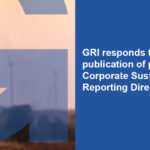Denmark’s system of mandatory green reporting by companies with a significant environmental impact (the "green accounting system") is set for its first major overhaul in five years, under a proposal expected to go before parliament before the summer.
The most significant change would give local authorities responsibility for checking reports before publication in a bid to improve public interest and faith in their credibility. This is similar with the actual Dutch regulation.
In a discussion paper from the Danish environmental protection agency (EPA) the proposal will also require companies state in their reports whether they have complied with all the terms of their environmental permits. It is possible that companies submitting satisfactory reports would be relieved of some reporting requirements.
The overhaul follows a major review of the second full year of reporting in 1998, which was published last summer. This found a "disturbingly low level of [public] demand" for the reports, which officials attribute to uncertainty about whether the companies could be trusted. However, reports were found to have played an important role in boosting industry’s own environmental awareness.
Environment minister Svend Auken said he expected green reporting to become increasingly important in future, and to spread well beyond the 1,200 companies so far obligated under Denmark’s scheme.
Other proposals, to be elaborated by a new multi-stakeholder committee, will link reports directly to legal requirements under the 1996 EU integrated pollution prevention and control (IPPC) directive, with which member states were due to comply by last November. Emissions data, for example, will be fed directly from reports into a new European Commission data base.
Other changes to the law being proposed by the EPA include a requirement for firms to show how employees are being involved directly in environmental work. Information on environmental management systems and any demands on sub-contractors will also be made mandatory, along with existing data on energy and raw materials use, and emissions to water, soil and air.



